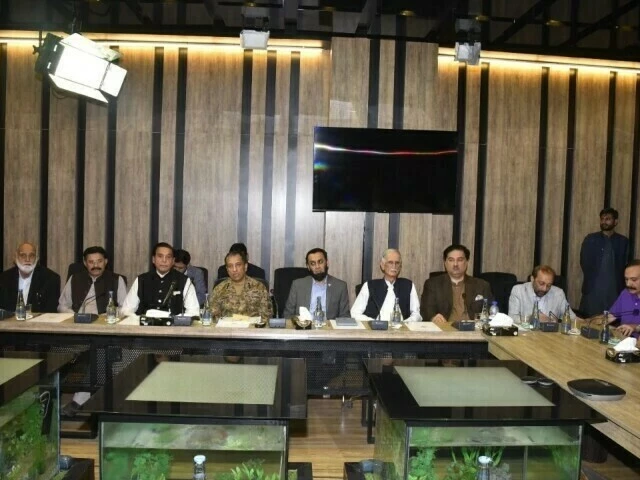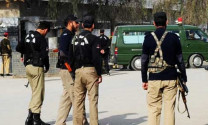'Pakistan is a peaceful nation, but ready to respond to any aggression'
DG ISPR, information minister hold in-camera session to brief major political parties on national security situation.

In the wake of escalating tensions with India, top Pakistani military and government officials held an in-camera session on Sunday to brief leaders of major political parties on national security developments and the country’s preparedness, according to PTV.
Director General of Inter-Services Public Relations (ISPR), Lt Gen Ahmed Sharif Chaudhry, and Information Minister Attaullah Tarar led the high-level briefing in Islamabad.
During Sunday’s briefing, political leaders were informed of the current security environment, the armed forces’ operational readiness, and Pakistan’s diplomatic efforts. DG ISPR reaffirmed Pakistan’s desire for regional peace but warned that the military is fully prepared to respond to any aggression.
“Pakistan is a peaceful country and wants peace in the region,” he was quoted as saying. “If aggression is imposed on Pakistan, then the forces were ready to give a befitting reply to the enemy,” he added.
Tarar also updated party leaders on the government’s diplomatic outreach and reiterated the state’s position: a commitment to peace, readiness for defense, and a demand for credible international scrutiny into the Pahalgam incident.
State broadcaster PTV and Radio Pakistan emphasised that the session demonstrated rare national unity and cross-party consensus during a time of elevated external threat.
The session focused on recent regional developments following the April 22 attack in Pahalgam, located in Indian Illegally Occupied Jammu and Kashmir (IIOJK), which left 26 people dead in one of the deadliest assaults since 2000.
India was quick to suggest cross-border involvement, despite offering no evidence. Pakistan has firmly denied the allegations and called for an impartial and transparent investigation into the attack, which it views as a possible false-flag operation.
Since the incident, bilateral relations have sharply deteriorated. India has revoked Pakistani visas, suspended the Indus Waters Treaty, increased military deployments, and hinted at possible airstrikes. In response, Pakistan expelled Indian diplomats, cancelled visas—except for Sikh pilgrims—and reinforced its border defenses.
Meanwhile, exchanges of fire across the Line of Control (LoC) and tit-for-tat military and diplomatic moves have raised concerns of further escalation. In a notable display of deterrence, Pakistan successfully tested an upgraded version of its nuclear-capable Abdali missile, extending its range to 450 kilometers.
Chief of Army Staff (COAS) General Asim Munir warned on Thursday that any misadventure by India would provoke a “swift, resolute, and notch-up response.” The next day, military leadership reiterated that any Indian attempt to initiate conflict would be met with a “sure and decisive” reply.
In anticipation of potential hostilities, authorities in Azad Jammu and Kashmir (AJK) have ramped up emergency preparations, including stockpiling wheat flour in forward areas along the LoC and relocating food depots to safer zones to ensure civilian supply lines remain intact during conflict.



















COMMENTS (1)
Comments are moderated and generally will be posted if they are on-topic and not abusive.
For more information, please see our Comments FAQ